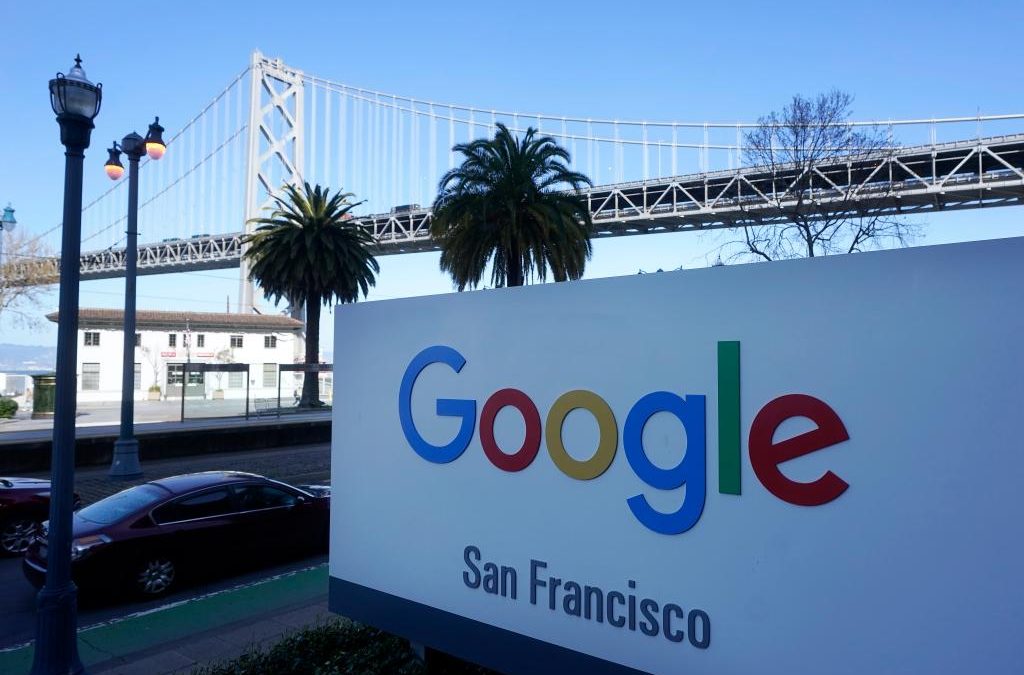The future of Google’s lucrative “Play Store” for Android apps has been thrown into doubt after the tech giant suffered a shocking antitrust loss to “Fortnite” maker Epic Games.
In a stunning verdict that took just three hours, a federal jury in San Francisco found late Monday that Google was operating illegal monopolies in the form of both the Google Play store and its closely-linked Android in-app billing system.
Google for years has earned billions in annual profits while pocketing a controversial cut of up to 30% on digital transactions made within its app store.
Now, US District Judge James Donato will decide which illegal business practices Google must scrap.
That could include barring Google from making payments or otherwise signing special deals to placate app developers or dissuade them from launching rival app stores.
The jurors specifically found that such deals, known internally as “Project Hug,” were stifling competition.
While Donato said he doesn’t plan to dictate a specific percentage fee structure that Google can charge app developers, he could order Google to end requirements for app developers to use its billing system in order to place products in its Play Store, clearing the way for rivals to offer competing app stores.
Such a ruling would effectively force Google to more favorable terms — or risk losing business to newly emergent rivals offering similar platforms.
“When you have competitor app stores and you have a competitive market, what those other app stores will be able to charge and collect for in-app payments is something that the market will adjust for,” said Katherine Van Dyck, senior legal counsel at the antitrust watchdog American Economic Liberties Project.
Epic Games — which originally filed suit against Google in 2020 after “Fortnite” was removed from the Play Store for trying to use its own payment system — notably sought “injunctive relief” from the court rather than pursue monetary damages. Donato has scheduled hearings for January regarding the potential remedies.
In a post-trial interview, Epic CEO Tim Sweeney told Bloomberg the jury’s ruling meant that “the dominoes are falling” and the end of Google’s 30% revenue cut was “in sight.”
He also argued that the shift in Google’s business model would add more pressure on Apple, which dodged a similar blow when it earned a favorable split verdict in its own 2021 court battle with Epic.
“The economics is real,” Sweeney told Bloomberg. “When you remove a 30% tax from an ecosystem, consumer prices will get better. Or quality will get better and selection will increase.”
Epic’s legal team focused heavily on Google’s “Project Hug” during the trial, describing the payments as a “bribe and block” scheme.
That included $360 million in incentives to “Call of Duty” maker Activision Blizzard in exchange for launching its products on the Play Store.
The jury was shown emails from 2019 in which Google employees discussed concerns that Activision CEO Bobby Kotick was miffed over the 30% commission.
Equity research analysts at Jefferies described the jury’s decision “as a potential turning point for media companies” who stand to earn higher margins on their products if Google is forced to lower its commission or allow developers to use their own payment systems.
“Apple would be a potential loser, as would Google, as they would likely see lower take rates and some loss of payment processing share,” the Jefferies analysts said.
While the Apple v. Epic case is still under appeal to the US Supreme Court, the Google verdict is likely to have a “negligible” impact on those proceedings, argued Van Dyck, who noted they were “separate cases with different facts.”
As the Jefferies analysts noted, Apple’s 30% commission within its app store is “evenly applied,” while Google made use of “sweetheart deals” for certain developers.
Additionally, the Apple v. Epic case was a bench trial with the final decision rendered by a federal judge, whereas the Google case was decided by a jury.
Still, the Google verdict could undermine Apple’s appeal of the one count it is trying to reverse.
A court ruled that Apple violated the law by blocking app developers from “steering” customers away from making purchases within its app store in order to avoid paying the company’s fee.
The unfavorable ruling also chips away at the legal standing of Google and other tech firms who face unprecedented antitrust scrutiny.
For Google, that includes a massive Justice Department antitrust suit targeting its online search business, which is due for a judge’s ruling next May.
“Having one verdict is a hole in the dam. That’s something that Google will certainly be thinking about as it continues with other cases,” Van Dyck said. “That’s a message to other judges and other juries that this isn’t a perfect company.”
Google plans to “challenge” the verdict, according to Wilson White, the company’s vice president of government affairs and public policy.
“Android and Google Play provide more choice and openness than any other major mobile platform,” White said. “The trial made clear that we compete fiercely with Apple and its App Store, as well as app stores on Android devices and gaming consoles.”
Source




